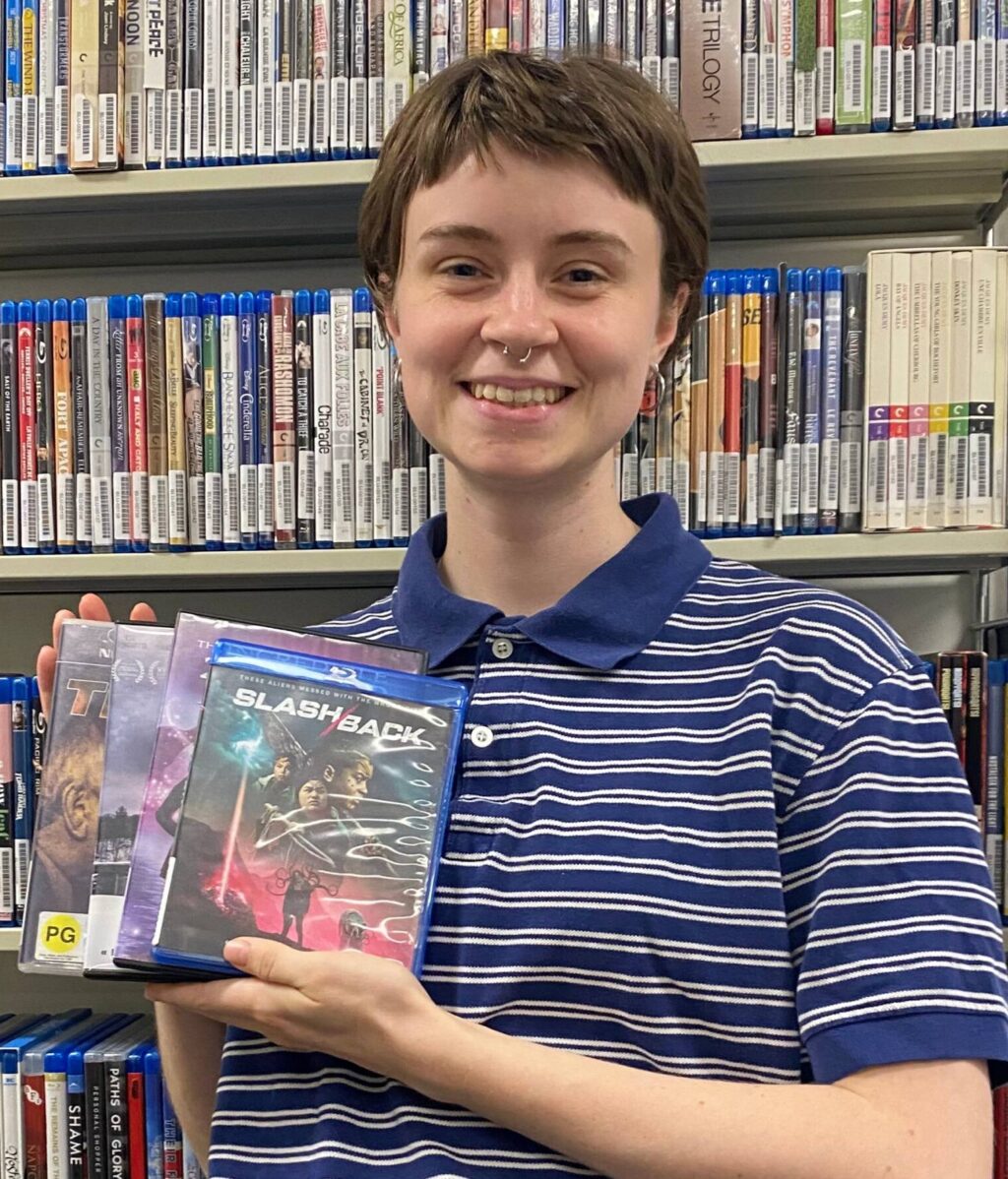Journeying into the catalogues
by Etta Gerrits — Collections Assistant 2024 (Young Canada Works Program)

This summer, I had the chance to try something new as a Collections Assistant at the AVRC through the Young Canada Works summer program. Over the course of the summer, I got to sort and deaccession slides, create a new website, and create new records for a collection of images of Syrian architecture. However, possibly the most rewarding accomplishment of the summer was going through and enriching the metadata for the AVRC’s (quite substantial) Indigenous film collection.
Metadata enrichment is the process of updating and adding more information to records in a library catalogue in order to make them more accurate (i.e. more enriched). In this case, we wanted to make sure all of our films by Indigenous filmmakers had robust records to make them findable to people searching our catalogue. We also wanted to make sure that any films by or about Indigenous people didn’t have any inaccurate or harmful terms in their records. Most of the record information lies in the subject headings – these are essentially like tags that will pull the item from the catalogue when one of these terms is searched.
The hardest (and most fun) part of this project was learning our cataloguing process. The AVRC uses the popular MARC 21 cataloguing system, which is overseen by the Library of Congress and used by many other libraries. The widespread use of the MARC 21 system means that libraries, including ours, can share and copy the records that other librarians made using the MARC 21 language rather than each library having to write all of them from scratch. Of course, this means that our records can be accessed and used by other libraries as well, bringing a certain weight to the quality of my metadata enrichment project. I was highly aware that the accuracy of the records I created would affect whether the material could be found and used in not only our collection, but potentially other libraries’ collections as well.
In the middle of my journey learning about MARC 21, I was introduced to a recent innovation within this system: FAST (Faceted Application of Search Terms) subject headings. After having spent several full days trying to learn the Library of Congress subject heading system (a system which normally requires full-on training to use properly), I discovered the FAST subject heading system, which still works with MARC 21 and with Library of Congress Subject Headings, but which took me less than a day to wrap my head around and learn to use. This blog post is too short to fully explain the excitement of discovering post-coordinate indexing (a term to describe the difference in indexing form that makes FAST so effective), but let me assure you, all my friends and family heard about it when I discovered FAST. Learning about FAST while working on this project meant that it was easier for us to decide to incorporate this system into our new collections database. I am hopeful that future records created at the AVRC will be much easier to write and much more effectively searchable because of our discovery of FAST.
This project, which I got to see through from start to end, was doubly rewarding: the AVRC’s Indigenous film collection’s records got a much needed update, becoming more accurate and accessible; and I got to learn about cataloguing systems from the ground up, discovering a love for the endless acronyms, spreadsheets, and controlled subject heading vocabularies that make up the process!
There was so much to learn at the AVRC this summer, and while this was one of the most exciting projects I took on, I am grateful to have learned new processes and techniques working on many different kinds of tasks! All summer I got to learn completely new skills – like metadata enrichment – which made it a really fun and valuable experience. I had a summer of cataloguing thanks to my placement at the AVRC, and I’m looking forward to keeping up my relationship with this great place and these great people!